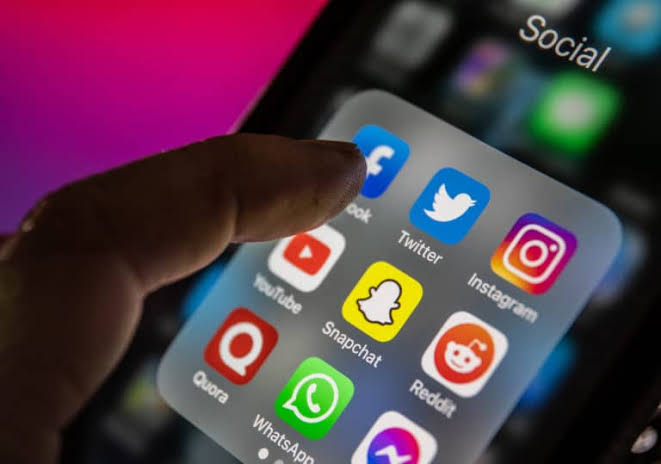Language is a dynamic tool shaped by interaction, cultural perception, attitudes, and beliefs.
While some see language as a simple system of words, research shows it is a complex set of symbols, expressions, and actions that resonate with specific communities.
In Nigeria, known for its creativity and linguistic diversity, 2024 has seen a surge of new words and phrases popularised through social media.
These expressions are quickly adopted into daily interactions, showcasing the adaptability and creativity of Nigerians.
READ ALSO:
First Lady, Oluremi Tinubu commissions alternative High School for Girls in Osun
Court of Appeal overturns judgment freezing Rivers State’s allocations
I met empty treasury, workers’ minimum wage was only N7,000, infrastructure in shambles — Gov Lawal
The year began with the viral slogan ‘no gree for anybody’, translating loosely to ‘don’t back down for anyone’.
This phrase embodies resilience, inspiring Nigerians to stand their ground in all areas of life; religious, academic, professional, and social.
Mass communication expert Ahmed Animashaun noted, “When I first came across the phrase, it motivated me.
“It made me believe that I can be what I want to be, but I was scared that it may cause problems in my interactions if taken wrongly”.
Similarly, agripreneur Jaja Somieibi explained its layered meanings: “It means that if someone does what you don’t like or want, make sure that you get back at the person, probably bigger and better.
“If a person gives you an A, make sure they collect A or AB”.
Counsellor Amina Olalekan offered a more tempered view, saying, “The theme ‘no gree for anybody’ is an indirect way of saying ‘giving up should not be an option’, But if it is taken out of context, it will cause problems for people.
“I understand that to every theme, some people might bring an opposite interpretation, which can lead to toxicity and unruliness, but I believe that at the heart of this slang/theme, it’s a push toward better”.
Another phrase that took Nigeria by storm in 2024 was ‘steeze’.
Originating as slang for effortless style and charisma, steeze has evolved to encompass a broader ethos of composure and self-awareness.
For creative designer Farouq Abdullahi, steeze became a mantra for emotional regulation.
“When I’m on the verge of losing my temper, my friends remind me to ‘maintain steeze’, ‘No fumble’.
“And it went on like that, you know, trying to be composed at all times. Even if someone is trying to take advantage of me, I look for ‘steezy’ ways to handle it,” he shared.
Fashion designer Sylvia Omon, on the other hand, interprets steeze more literally.
“For me, steeze is being stylish, attractive, and standing out. I never knew this word existed until this year, I think April or May. It was a game changer.
“I became intentionally steezy, if that’s a word. It just brought this consciousness of being aware of yourself and the aura you give out”.
The phrase ‘very demure’ has also gained traction, often used to describe someone who is modest, reserved, or composed.
However, Nigerians have added their characteristic flair by exaggerating its usage, transforming it into a humorous compliment or even a subtle critique.
Accountant Favour Osai recounted an amusing encounter while waiting in a bank queue.
“A staff member called me ‘very demure’ for staying calm amidst the chaos. I didn’t know whether to laugh or take it as a compliment”.
Social analyst Onah Reuben drew parallels between ‘very demure’ and ‘steeze’.
“Very demure means being mindful, elegant, and courteous, but steeze means being composed and stylish.
“If you are observant, Nigerians tend to mix these up, thereby making an ordinary English learner and speaker confused.
“But trust Nigerians, they understand themselves, so it’s no issue.”
‘Dey play’, a simple yet impactful phrase, has become a staple of Nigerian slang.
Often used humorously, it serves as a sarcastic retort to someone perceived as unrealistic or overly optimistic.
Artist Sayo Adejare remarked, “I was surprised. I feel it’s not only youths that the slang caught on to. Adults used it too. In fact, as long as you are using social media, that word will sneak into your lips.
“It’s a perfect response to some people’s actions or words, but trust Nigerians to exaggerate it; they can use it as a response to someone who is serious and in touch with reality”.
A Teacher, Kunle Fowowe expressed his admiration for the slang, saying, “I think we have to realise that Nigerians are expressive people, and they will use anything, image, or word to express their sentiments”.
Beyond these trends, social media has reinvigorated more indigenous expressions.
‘Kwechiri’ (Igbo word for astonishment) and coined new ones such as ‘no evidence’ (indicating lack of proof) and ‘no cap’ (a Gen Z phrase meaning truthfulness).
These phrases reflect evolving cultural narratives while showcasing Nigeria’s linguistic creativity in addressing contemporary realities.
As social media continues to shape communication, it enables Nigerians to blend humour, resilience, and tradition into a shared language that transcends boundaries.
Stakeholders argue that the future of Nigerian language trends relies on preserving indigenous languages while fostering creativity through social media and education.
Many believe that tools like ‘memes’ and digital contents can help keep these languages alive, while schools can incorporate slang into their curricula to highlight its cultural significance.
Dr Adebayo Akanji, a linguistics expert, cautions, “Nigerian slang is a powerful medium of expression, but without proper guidance, it can be misinterpreted or misused”.
Akanji however urged educators and influencers to provide context to ensure that slang remains inclusive and positive. (NANFeatures)

